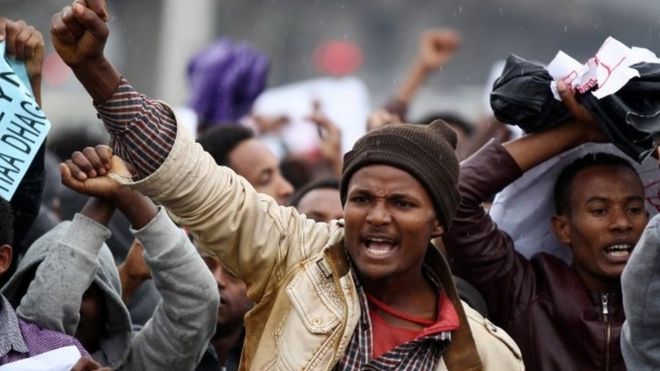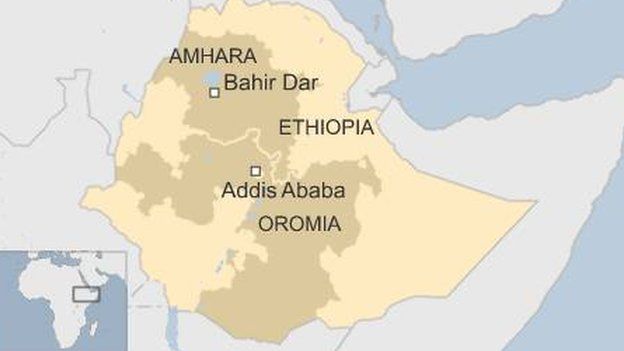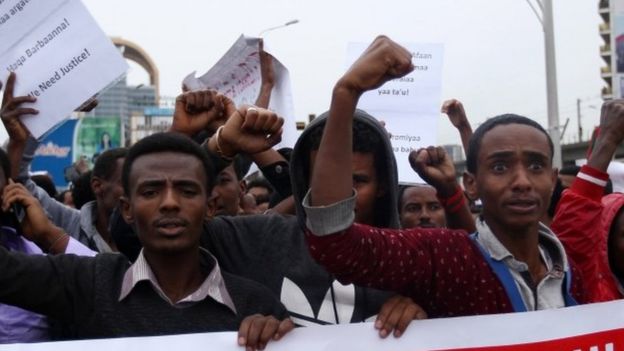- 3 hours ago
- Africa
 REUTERS
REUTERSNearly 100 people were killed in the weekend's protests in Ethiopia as demonstrators clashed with security forces in different parts of the country, Amnesty International says.
The rights group says the most deadly incident happened in Bahir Dar, where at least 30 people died on Sunday.
The authorities have said seven died in Bahir Dar and that security forces were reacting to violence from protesters.
There has been an unprecedented wave of protests in Ethiopia in recent months.
People in the Oromo and Amhara regions have been complaining about political and economic marginalisation.
Amnesty says that 67 people died when "security forces fired live bullets at peaceful protesters" in different towns and cities in the Oromo region over the weekend.
There were clashes between security forces and protesters on Sunday in Bahir Dar, the Amhara regional capital.
Opposition activists have given similar figures for the number of people killed.

The government has blamed "nearby and distant foreign enemies and social media activists" for defying warnings about holding unauthorised protests, the government-affiliated Fana Broadcasting Corporate (FBC) reports.
The authorities have said that the demonstrators were destroying government and private property and "inflicting deaths on innocent citizens" and arrests were made as people were trying to spread the violence, FBC adds.
The United States, a close ally of the government, said it was "deeply concerned" by the violence and said the people's rights to demonstrate should be respected.
 REUTERS
REUTERSThe unrest was sparked last November by a plan to expand the capital into Oromia. This led to fears farmers from the Oromo ethnic group, the largest in Ethiopia, would be displaced.
The plan was later dropped but protests continued, highlighting issues such as marginalisation and human rights.
New York-based Human Rights Watch says that more than 400 people have been killed in clashes with the security forces since protests began. The government has disputed this figure.
The Amharas are Ethiopia's second biggest ethnic group and used to form the country's elite.

No comments:
Post a Comment